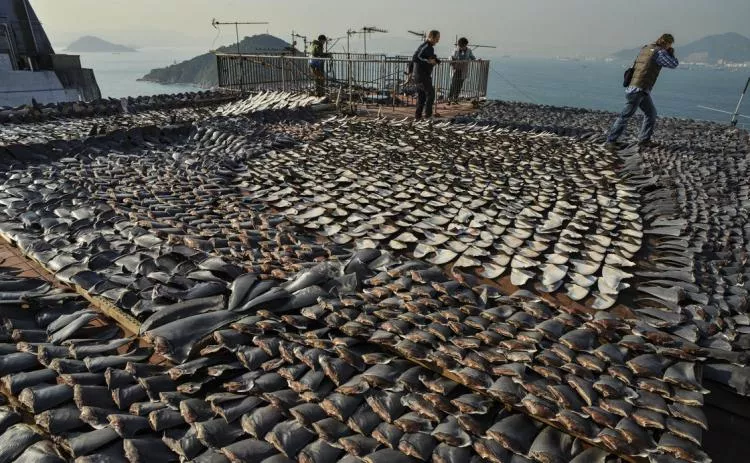Global Challenges and Evolving Threats: A Comprehensive Analysis of Shark Fishing
A new global analysis by Boris Worm of Dalhousie University and his team has found that the anti-shark finning measures taken by many jurisdictions in recent decades have not decreased shark mortality as expected. Instead, anti-finning regulations have opened up new markets for shark meat and other products, the researchers reported in the journal Science. The numbers of sharks killed by fisheries increased from about 76 million per year to over 80 million between 2012 and 2019.
The ancient group of marine predators, which first appeared in the fossil record 440 million years ago, are facing a critical juncture in their existence. Though they have been resilient to other mass extinctions, the current one is caused by decades of industrial overfishing along with the growing demands of the shark fin trade. It has put those shark and ray species accessible to fisheries at risk of extinction, with far-reaching consequences for ocean ecosystems.
The new analysis included fishery- and country-level data based on United Nations Food and Agriculture Organization (FAO) reports, regional data, and expert sources. In-depth interviews with 22 experts complement the quantitative assessment, providing insights into current trends, and the effectiveness of existing regulations.
Impact of regulatory measures
It found that there has been a more-than-tenfold increase in international and national measures addressing shark fishing and finning since 2000. However, by linking shark mortality data to the regulations in place, the researchers show that these efforts have not been successful in reducing shark mortality. In most regions, legislation focused on eliminating shark finning rather than curbing shark fishing.
Only fishing bans and shark sanctuaries have succeeded in reducing the numbers of sharks being slaughtered. Twenty-nine countries have declared their territories to be shark sanctuaries, no-take protected areas or have put in place other measures prohibiting shark fishing within their national waters. Most jurisdictions, however, have focused shark conservation efforts on measures to eliminate shark finning rather than to curtail fishing or retention of sharks outright.
The study suggests a shifting global landscape of shark fishing mortality, moving away from the finning of larger pelagic species toward the full use of smaller coastal species.
Hotspots of shark mortality
From 2017 to 2019, national waters accounted for 95 percent of shark fishing mortality calculated by the number of individuals, or 71 percent of the catch by tonnage. The current hotspots of shark slaughter are concentrated in coastal environments, including the Atlantic coasts of North and South America, West Africa, the northern Indian Ocean and the Coral Triangle. These areas also align with regions designated as threatened with extinction by the International Union for the Conservation of Nature (IUCN).
Expert perspectives
In-depth interviews with a diverse group of shark science, conservation, fishery and industry professionals corroborate the findings. While many experts perceive a decline in shark finning over the past two decades, regional variations in trends and an increase in the demand for shark meat are noted. Some interviewees highlight the negative consequences of finning regulations, indicating that countries now land whole sharks, creating new markets for shark products. Concerns are raised about the shift towards catching smaller sharks, especially juveniles, with the Indian Ocean and Indo-Pacific regions identified as primary areas of shark by-catch concern.
Challenges and recommendations
The study underscores the regulatory shortfall in addressing overall shark mortality, especially in coastal hot spots. Despite positive trends in certain areas, such as declining shark mortality under the oversight of tuna Regional Fisheries Management Organisations (RFMOs), and increasing numbers of shark sanctuaries declared in response to the shark fin trade, the overall risks for coastal sharks are escalating globally.
The importance of improved data reporting and science-based catch limits is emphasized to address overexploitation. The study calls for a combination of area-based conservation measures and improved species-specific fisheries management to rebuild ocean ecosystems and promote sustainable fisheries. As low-income countries take the lead in localized efforts for marine conservation, the study serves as a baseline against which future progress in recovering threatened shark populations can be assessed.



























